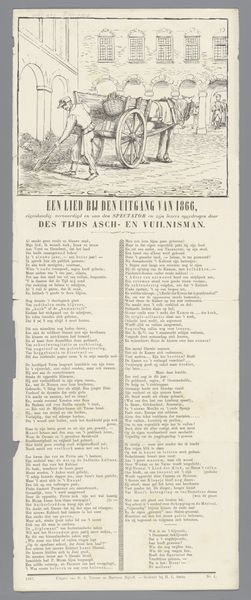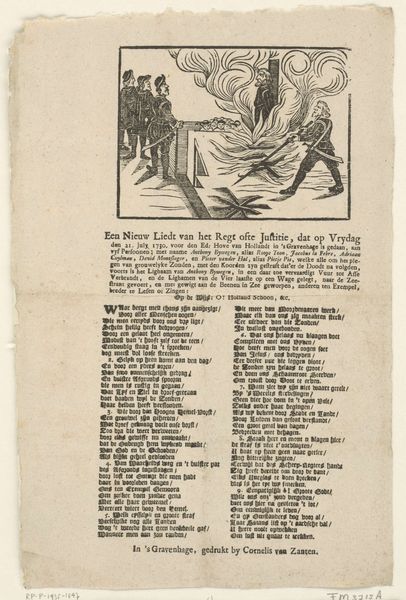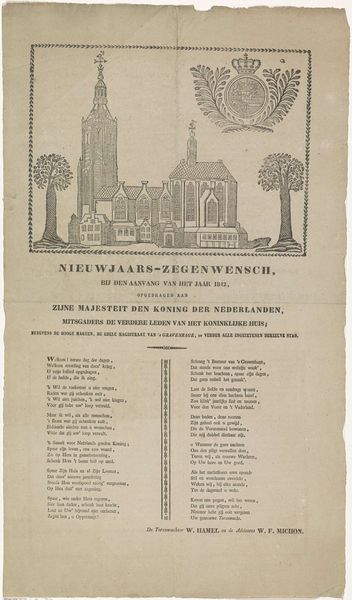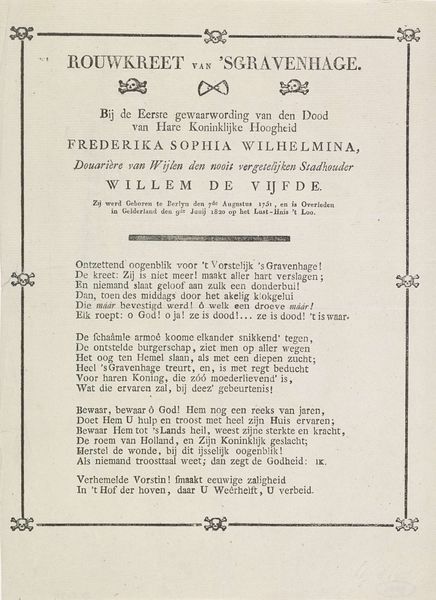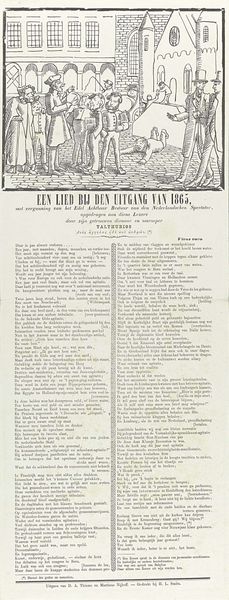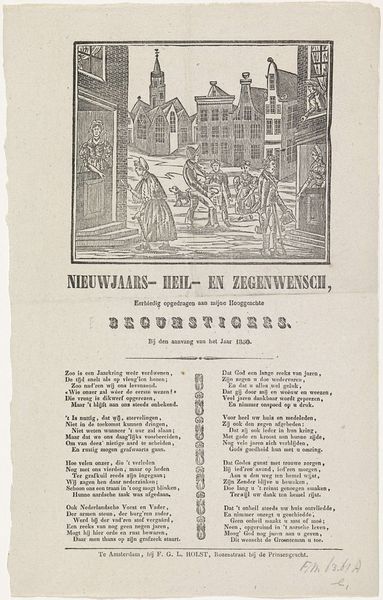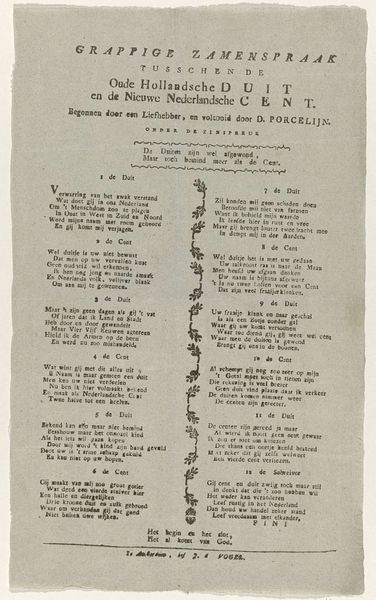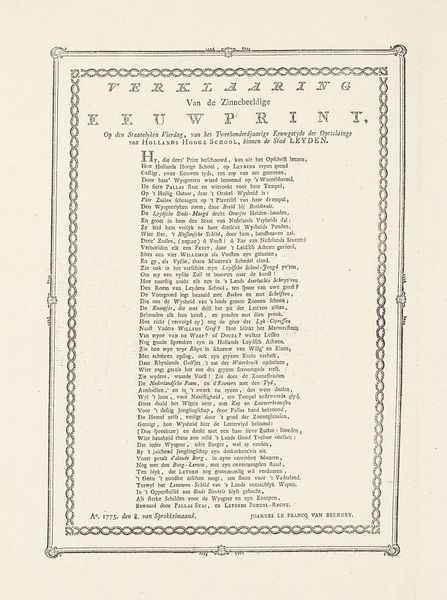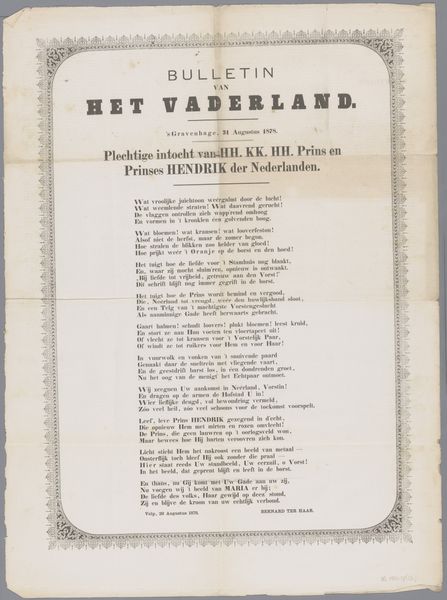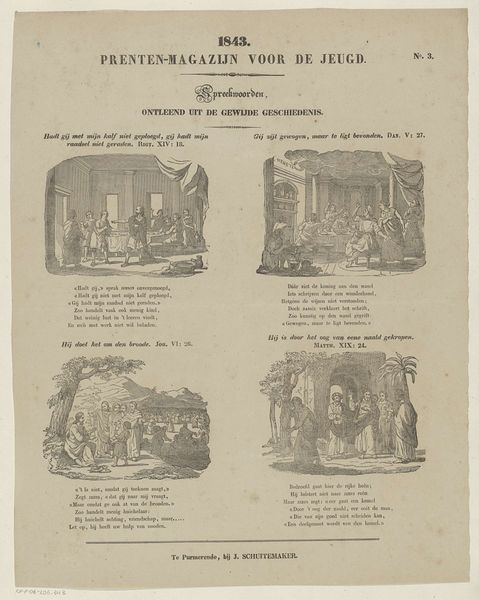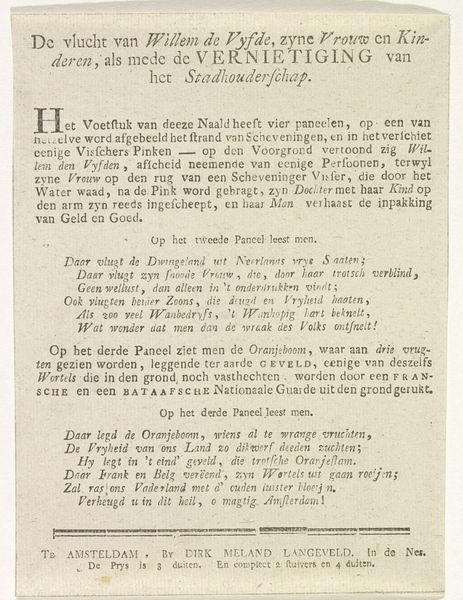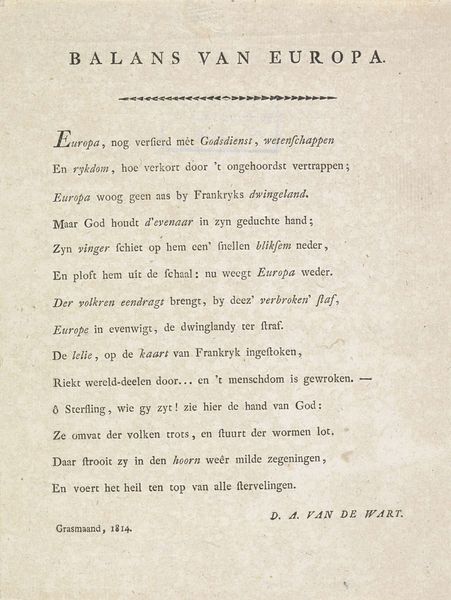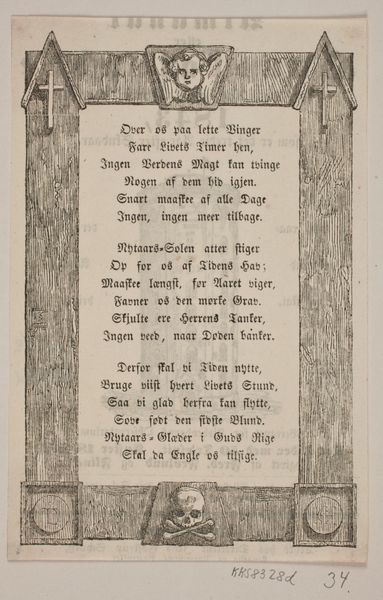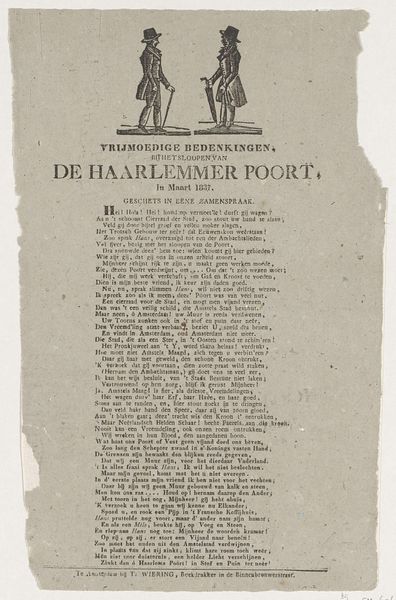
graphic-art, print, typography, engraving
#
graphic-art
# print
#
typography
#
engraving
#
realism
Dimensions: height 338 mm, width 210 mm
Copyright: Rijks Museum: Open Domain
This is F.G.L. Holst’s print from 1847 entitled "Buitenkoersstelling van de gouden tientjes”. It stages a conversation between a gold coin and a paper bill. The print reflects the social and economic anxieties of the time. In the 19th century, the Netherlands, like many nations, grappled with questions of monetary value and economic stability. This work captures a moment of transition where traditional forms of currency, like gold, are confronted with the rise of paper money. The text has the "Golden William" coin speaking with pride of its rich heritage while mocking the “Munbillet”, or paper bill. The paper bill is presented as a newcomer, of less value, who is anxious about the future. The piece serves as a commentary on the shifting economic landscape and the perceived threat to traditional values. The exchange in the print isn't just about money; it's about identity, legacy, and the fear of change. Holst poignantly portrays how economic shifts affect the collective psyche and challenge the foundations of cultural identity.
Comments
No comments
Be the first to comment and join the conversation on the ultimate creative platform.
